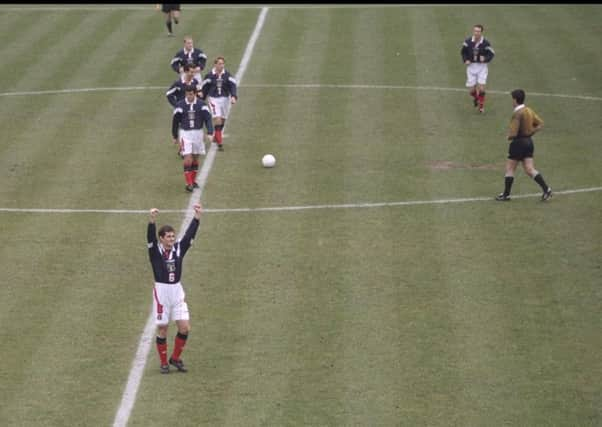Alan Pattullo: Lennart Johansson’s role in Scotland-Estonia farce wasn’t funny


Then there was also mention of the difficult position he was put in when having to steer European football through the uncharted waters following the implementation of the Bosman ruling. He was a popular elder statesman of the game and a refreshing antidote to Sepp Blatter, the charming salesman who seemed to prove the old adage about power’s corrupting properties while head of Fifa. Johansson had little time for Blatter, to whom he lost a divisive battle for the Fifa presidency in 1998.
There was, however, one notorious occasion when Scots had reason to question Johansson’s impartiality.
Advertisement
Hide AdAdvertisement
Hide AdIn obituaries published so far there’s been little discussion, barely a mention in fact, about his role in one of the strangest episodes in Scottish football history – and the oddest game. All three seconds of it. Johansson had more input than perhaps was seemly following Scotland’s Game That Never Was in Estonia in 1996.
The saga started after manager Craig Brown registered his dissatisfaction with the floodlights at the Kadrioru stadium, where Scotland were due to play the third match of their qualifying group for France 98. The Fifa match delegate agreed and word came from their Zurich HQ that the game should be brought forward to 3pm, something that satisfied Scotland but did not find favour with Estonia.
Many of their players were part-time and so they stuck to their schedule – kick-off 6.45pm. Scotland turned up several hours earlier and performed the kick-off ritual that’s now become so fabled, with Billy Dodds nudging the ball to John Collins and then celebrating victory when the referee almost immediately blew the final whistle, with choruses of “One team in Tallinn, there’s only one team in Tallinn” ringing in their ears from the Scotland supporters, who had responded to the message, spread around bars and hotels, that Scotland would be there for 3pm, even if their opponents were not.
The Scots left the stadium relishing the thought of three points – and a 3-0 win, the result normally applied if an opposition team is found to have effectively forfeited a game.
But they were forced to think again when a panel headed by Johansson (Sweden, his home nation, were in the same group as Scotland) decided the game should be replayed – in Monaco of all places. Scotland’s disgruntlement was intensified by knowledge that the rescheduling of the game for the start of the following year meant Gary McAllister, who was supposed to have served a suspension against Estonia (a game where it was felt his loss could be borne), missing the altogether more strenuous test of a home clash against Sweden the following month.
“Looking back, it is questionable if I should have chaired or even attended the Fifa meeting but honestly, isn’t it irrelevant?” Johansson, who was also vice-president of Fifa at the time, admitted. It was irrelevant in the end, fortunately. With Billy McKinlay standing in for McAllister, and Jim Leighton proving inspired in goals, Scotland defeated Sweden at Ibrox thanks to John McGinlay’s winner to go top of the group. No Fifa edict could deny them that.
And although Scotland, with Duncan Ferguson playing a rare game up front, huffed and puffed their way to a 0-0 draw in the re-match against Estonia they did manage to secure second place in the group – two points above Sweden. It remains the men’s side’s last World Cup appearance.